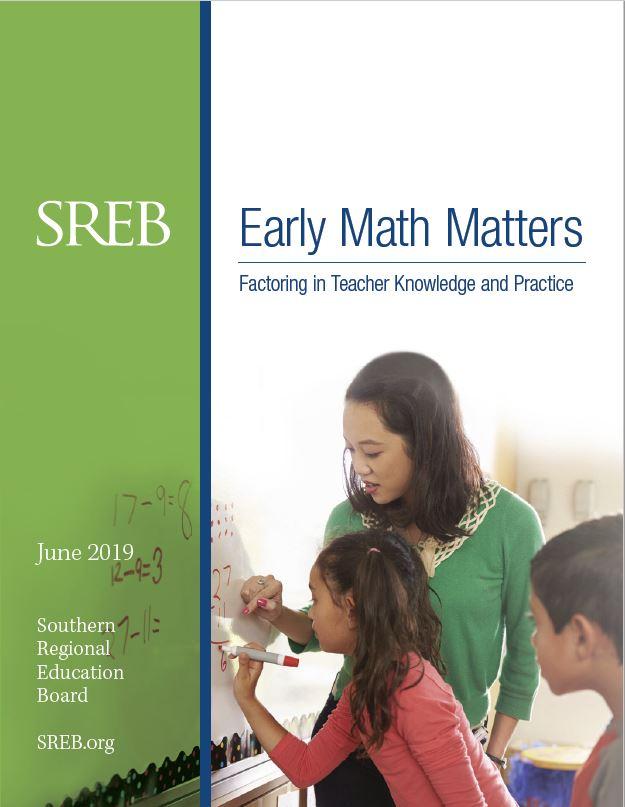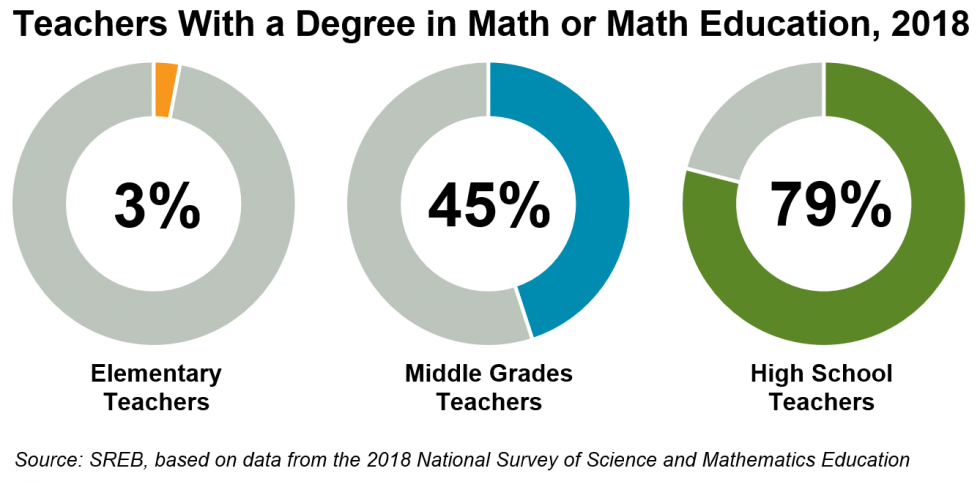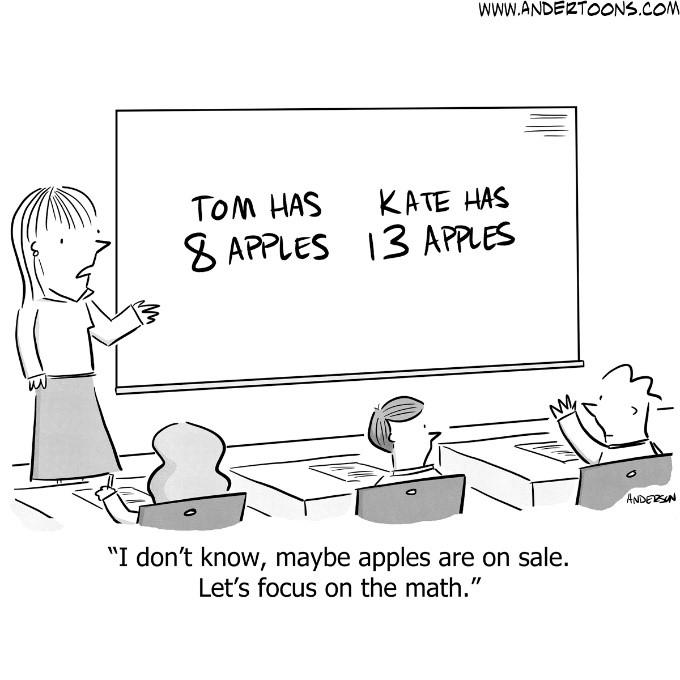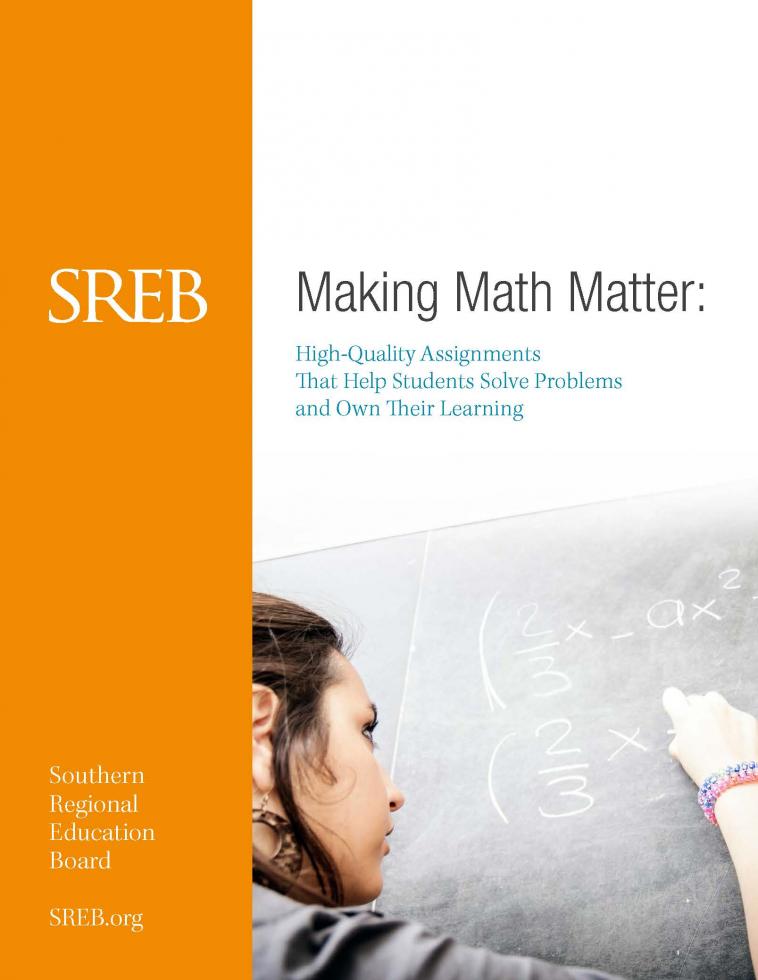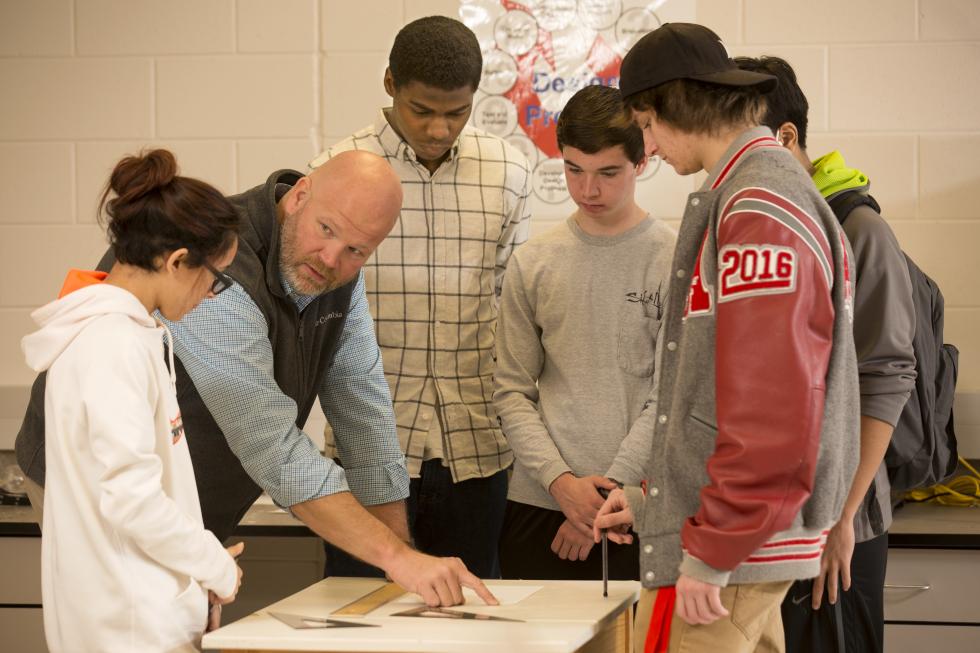Topic: Mathematics Instruction
Mathematics Instruction
Developing strong foundations in mathematics at early age is a key component to overall student success. By continuing to build math skills, middle and high schools can help prepare students for in-demand STEM careers that are critical to local economies. SREB offers analysis, reports and recommendations to help states improve mathematic instruction in their classrooms.
Early Math Matters
Factoring in Teacher Knowledge and Practice
This report explains why early math learning is so important, the current state of math instruction, issues with elementary teacher preparation and professional development, and how math anxiety impacts achievement. It also presents recommendations state leaders can use to help raise the math achievement of their students.
Math for Elementary Students and Their Teachers
How to improve math instruction for young students
SREB’s Early Math Matters: Factoring in Teacher Knowledge and Practice shows why math is so critical for young students and recommends ways to improve math instruction in elementary schools.
Why Early Matters: The Snowball Effect
Giving Elementary Teachers the Tools to Teach Math Well
Broad preparation can leave math-specific knowledge lacking
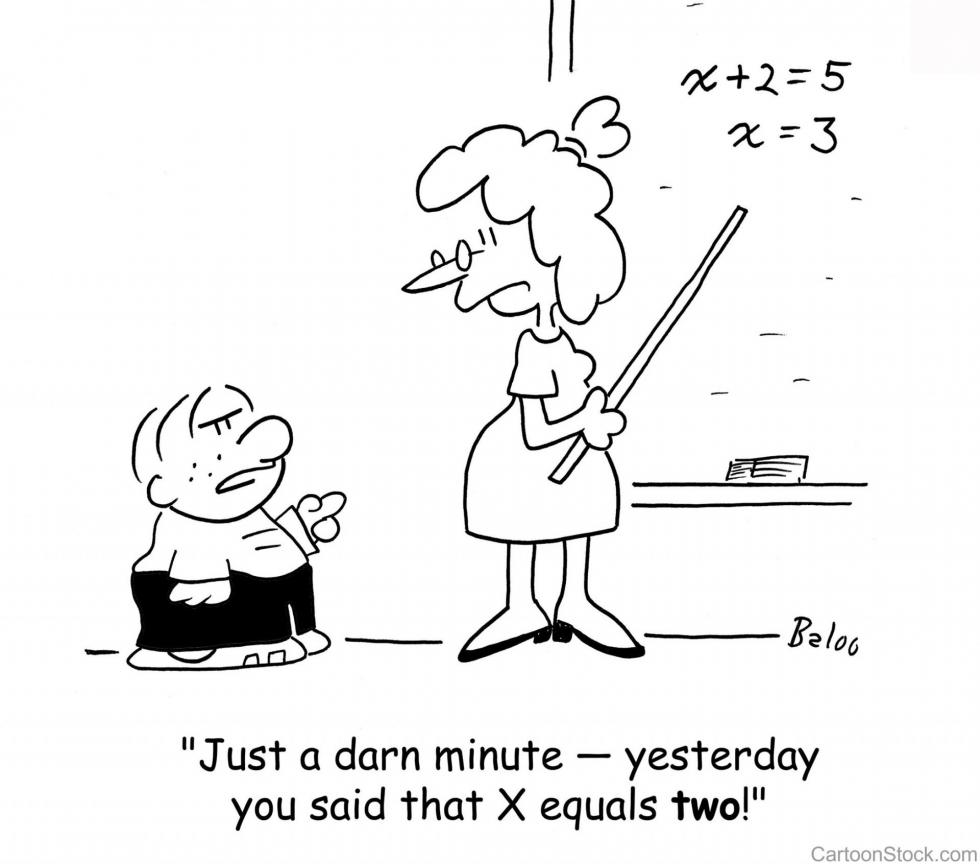 It’s no secret that aspiring
teachers with strong math backgrounds tend to be drawn toward the
secondary grades, where they can just teach math. In fact,
results of the 2018 National Survey of Science and Math
Education showed that just 3 percent of elementary teachers
surveyed held a degree in mathematics or math education, compared
with 45 percent of middle grades math teachers and 79 percent of
high school math teachers.
It’s no secret that aspiring
teachers with strong math backgrounds tend to be drawn toward the
secondary grades, where they can just teach math. In fact,
results of the 2018 National Survey of Science and Math
Education showed that just 3 percent of elementary teachers
surveyed held a degree in mathematics or math education, compared
with 45 percent of middle grades math teachers and 79 percent of
high school math teachers.
Why Do We Say “I’m Bad at Math”?
How math anxiety affects performance, and what we can do about it
We’ve all likely heard someone say, “I’m bad at math,” or even “I hate math.” In the United States, math is too often considered a subject that either comes naturally or doesn’t — there are “math people,” and everyone else can expect to struggle with it. If you stop and think, though, this makes as much sense as saying we’re all naturally good (or bad) at sports, or music, or writing. It’s true that becoming skilled in any of these areas may come more easily to some people than others, but we generally understand that no one becomes expert at baseball without learning the game and spending a lot of time practicing.
Not Made for Math? Think Again
How to Turn Every Student Into a Math Person
Adrienne Dumas has heard it from kids for years, like so many teachers and parents: “I just don’t have a math brain.”
A math teacher at Northwest Rankin High School in Flowood, Mississippi, Dumas disagrees, and with good reason — her Algebra 1 and geometry students have a 100 percent passing rate for the past three years on the state test. Dumas and other teachers offer their tips for math success in a recent SREB High Schools That Work newsletter.
Making Math Matter
High-Quality Assignments That Help Students Solve Problems and Own Their Learning
This report presents results of teacher and student surveys on how powerful Mathematics Design Collaborative practices are shifting how teachers teach. It also summarizes student achievement data from schools using the strategies in four states. In vignettes and testimonials, teachers who completed SREB professional development on MDC share how they have grown as teachers and how their students’ understanding of math concepts has improved.
Math Classroom Strategies Steal the Show
Joy Hofmeister, Oklahoma State Superintendent of Schools, visited Moore High School in December to look at its technology program. And she did, but she also got a pleasant surprise when principal Mike Coyle showed her to an Algebra 2 classroom.
Mathematics department chair Nancy Nix reported that the superintendent was “blown away by the level of student engagement and mathematical discourse.”
Math and Literacy Teaching Strategies Have Deep, Lasting Effect
Want to see where good teaching happens? Watch what students are doing in the classroom. Sounds obvious, maybe, but as SREB senior vice president Gene Bottoms says, “We observe teachers and what they’re doing all the time — but we miss a big piece of the puzzle if we don’t see what the kids are doing as a result.”
So SREB asked My Student Survey to see how our training in powerful literacy and math teaching tools is paying off in the classroom.
Building Critical Math Skills in the Early Grades
When children in primary grades study math, they are learning more than how to add, subtract, multiply and divide numbers. Solving math problems helps students develop strong analytical and problem-solving skills that are vital for academic and personal success. In Early Math Matters, SREB explores why early math is so important and provides recommendations on how state leaders can raise the math achievement of their students.
Four Surprising Takeaways From the MDC Classroom
Why are my students able to answer questions correctly in class but unable to succeed on the assessment?


